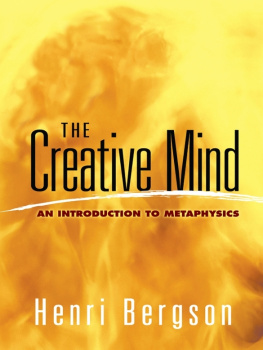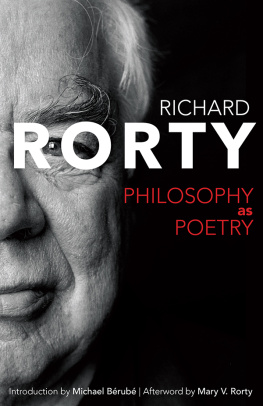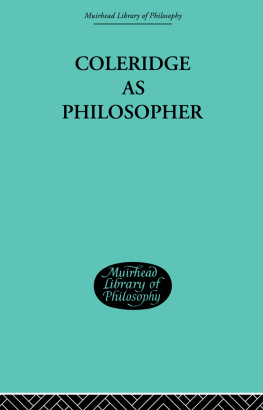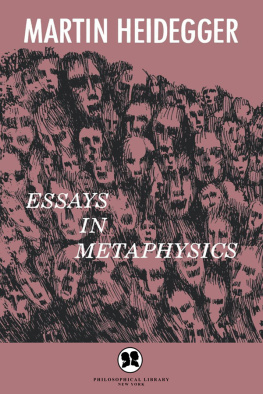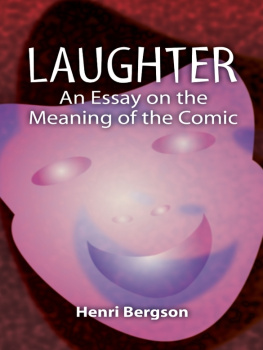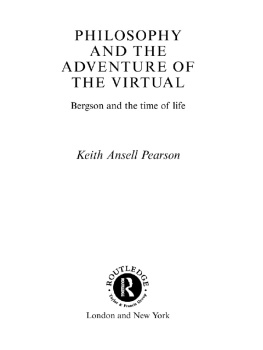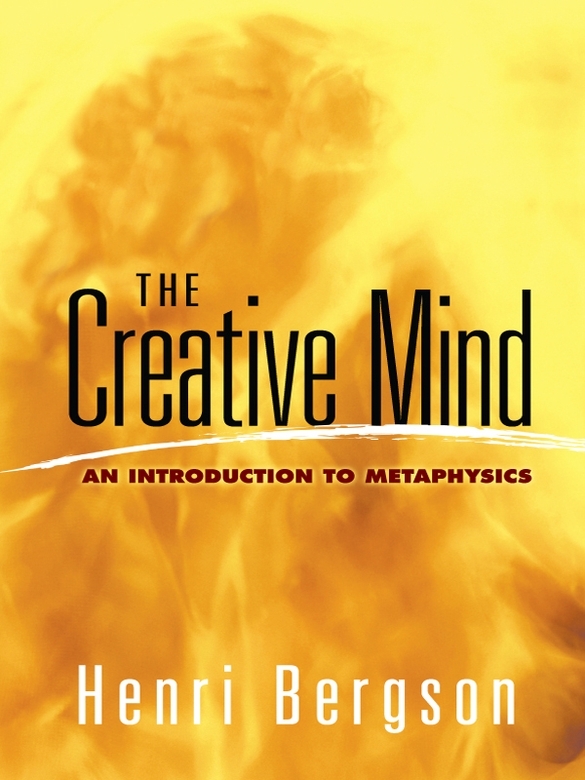What the cinematograph shows us in movement on the screen is the series of immobile views of the film; it is, of course, understood that what is projected on this screen, over and above these immobile views themselves, is the movement within the projector.
I explained at length my views on these consequences, and more generally on the belief in the retrospective value of true judgment, and the retrograde movement of truth, in lectures given at Columbia University (New York) in January and February, 1913. I confine myself here to a few indications.
The present study was written before my book Les deux Sources de la Morale et de la Religion, in which I have developed the same comparison.
But without including in the number, as they stand, four meanings he thought he saw. I refer to Harald Hffding.
It goes without saying that the relativity I am discussing here in order to exclude it from science taken at its limit, that is to say, to get rid of an error as it bears on the direction of scientific progress, has nothing to do with Einsteins relativity. His method consists essentially in finding a mathematical representation of things which will be independent of the observers point of view, (or, more precisely, of the system of reference), and which consequently makes up a whole of absolute relations. Nothing is more contrary to relativity as philosophers understand it when they treat as relative our knowledge of the external world. The expression, Theory of Relativity, unfortunately suggests to philosophers the opposite of what I am trying to express here.
Let me add, while on this subject of the Theory of Relativity, that it could not be appealed to either as supporting or confuting the metaphysics propounded in my various works, a metaphysics which has as its basis the experience of duration, along with the constatation of a certain connection between this duration and the space employed to measure it. To state a problem, the physicist whether relativist or no, takes his measurements in the Time here-now, which is our time and everybody elses. If he solves the problem, it is in the same Time, in this generalized Time, that he checks his solution. As for Time joined to Space, the fourth dimension of a Space-Time, it only exists within the interval between the posing of the problem and its solution, that is, within the equations, that is, on paper. This by no means detracts from the capital importance of the relativist conception by reason of its contribution to mathematical physics. But the reality of its Space-Time is purely mathematical, and one could not raise it to a metaphysical reality or simply to reality, without assigning to this last word a new meaning.
This term is most often applied to what is given in experience, or to what could be giventhe real is what is verified or verifiable. Now, it is of the essence of Space-Time that it be unperceivable. One could not be put into it or put oneself in it, since the system of reference adopted is, by definition, a stationary system. Space and Time being distinct in it, and the physicist, actually existing and taking actual measurements, is he who occupies this system: all the other physicists, supposedly adopting other systems, are for him only imaginary physicists. I have already devoted a book to the demonstration of these various points.
I cannot resume it in a simple note. But as the book has often been misunderstood, I think it advisable to reproduce here the relevant passage of an article in which I accounted for this misunderstanding. Here, indeed, is the point which ordinarily escapes those who, transferring themselves from physics to metaphysics, raise into realityinto things perceived or perceivable and existing before and after the calculationa fusion of Space and Time which exists only in the calculation and which, outside it, renounces its essence the very moment existence is claimed for it.
In the hypothesis of Relativity, I said, it would be necessary to begin by seeing clearly why it is impossible to attach at the same time to several different systems living and conscious observers, why one single systemthat which is effectively adopted as system of referencecontains real physicists, and why in particular the distinction between real physicists and physicists presumed real takes on a capital importance in the philosophic interpretation of this theory, when up to now philosophy had not had to concern itself with this theory in the interpretation of physics. The reason for this is nevertheless very simple.
From the point of view of Newtonian physics, for example, there is an absolutely privileged system of reference, an absolute rest and absolute motions. The universe is composed, at every instant, of material points of which some are motionless and others animated by movements perfectly determined. This universe is found to have within itself, in Space and Time, a concrete figure not depending on the point of view at which the physicist is placed: all physicists, whatever the mobile system to which they belong, refer in thought to the privileged system of reference and attribute to the universe the figure one would find in it on perceiving it thus in the absolute. If, then, the physicist par excellence is he who inhabits the privileged system, there is no call for establishing a radical distinction between this physicist and the others, since the others proceed as if they were in his place.
But in the Theory of Relativity, there is no longer a privileged system. All systems obtain. Any one of them can be chosen henceforth as system of reference, be immobilized. In respect to this system of reference all the material points of the universe will still be found, some of them motionless, others animated by determined movements; but it will only be in relation to this system. Adopt another: the immobile will move, the moving will become motionless or alter its speed; the concrete figure of the universe will have radically changed. Yet the universe cannot present for you these two figures at the same time; the same material point cannot be imagined by you, or conceived, at once motionless and in motion. One must choose, and the moment you have chosen such and such determined figure you raise up as a living and conscious physicist, really perceiving, the physicist attached to the system of reference from which the universe takes this figure: the other physicists such as they appear in the figure of the universe thus chosen, are then virtual physicists, simply conceived as physicists by the real physicist. If you confer on one of them (as physicist) a reality, if you suppose him perceiving, acting, measuring, then his system is no longer a virtual system of reference, no longer simply conceived as being able to become a real system, but truly a real system of reference: it is then stationary, you have to do with a new figure of the world; and the real physicist just mentioned is now only a represented physicist.
M. Langevin stated definitively the essence of the Theory of Relativity when he wrote that the principle of Relativity, in its restricted as well as more general form, is basically only the assertion of the existence of an independent reality of systems of reference, being in motion as they relate to each other and reckoning from which we observe their changing perspective. This universe has laws to which the employment of co-ordinates enables one to give an analytical form independent of the system of reference, and although the individual co-ordinates of each event depend on it nevertheless it can be expressed in intrinsic terms, as geometry has done with space, thanks to the introduction of invariant elements and the constituting of an appropriate language. In other words, the universe of Relativity is a universe as real, as independent of our mind, existing as absolutely as that of Newton and of general mankind. Only, whereas for general mankind, and even more so for Newton, this universe is a collection of things (even if physics confines itself to the study of relations between things), Einsteins universe is nothing more than the mere sum-total of relations. The invariant elements now held constitutive of the reality are expressions in which parameters enter, which are anything you like them to be, which no more represent Time or Space than anything else, because it is the relation between them that alone exists in the eyes of science, because, if there are no longer things, if the universe is without shape, no longer is there Time or Space.

